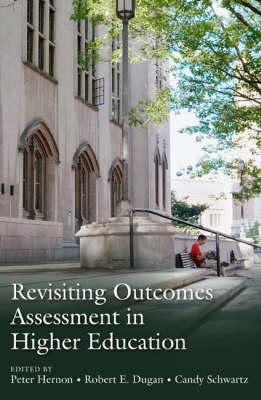Revisiting Outcomes Assessment in Higher Education complements rather than updates Hernon and Dugan's 2004 Outcomes Assessment in Higher Education. As with its predecessor, it offers a cross-campus diversity of voices: contributors hail from various segments of higher education, including officers of institutional accreditation organizations, an academic vice president, academic deans, a higher education consultant, faculty members, and librarians. Individually, they shed light on how their corner of the higher education universe views, facilitates, and substantiates outcomes assessment. Together, they document what is known about outcomes assessment in the middle of the first decade of the new century, as institutions and their programs take ever firmer steps from anecdotal evidence to more rigorous diagnosis and reporting.
The current interest in outcomes assessment represents a major shift in recent decades in attitudes about evaluating education. Outcomes assessment deals not only with assessment, but with accountability, usually in terms of accomplishing goals defined as desirable by the institution in question. It questions the results of educational processes, and focuses the argument on what students, faculty, and administrators demonstrably do. Revisiting Outcomes Assessment in Higher Education complements rather than updates Hernon and Dugan's 2004 Outcomes Assessment in Higher Education. As with its predecessor, it offers a cross-campus diversity of voices: contributors hail from various segments of higher education, including officers of institutional accreditation organizations, an academic vice president, academic deans, a higher education consultant, faculty members, and librarians. Individually, they shed light on how their corner of the higher education universe views, facilitates, and substantiates outcomes assessment. Together, they document what is known about outcomes assessment in the middle of the first decade of the new century, as institutions and their programs take ever-firmer steps from anecdotal evidence to more rigorous diagnosis and reporting. For faculty, administrators, and librarians at all academic institutions; accreditation organizations and associations, including program accreditors; program officials in national associations; and other stakeholders, including members of state and other governments wanting to see what academe is doing to link accountability with continuous quality improvement.
- ISBN10 1591582768
- ISBN13 9781591582762
- Publish Date 30 January 2006
- Publish Status Active
- Publish Country US
- Imprint Libraries Unlimited Inc
- Format Paperback
- Pages 472
- Language English
